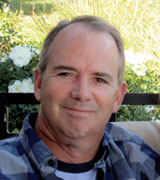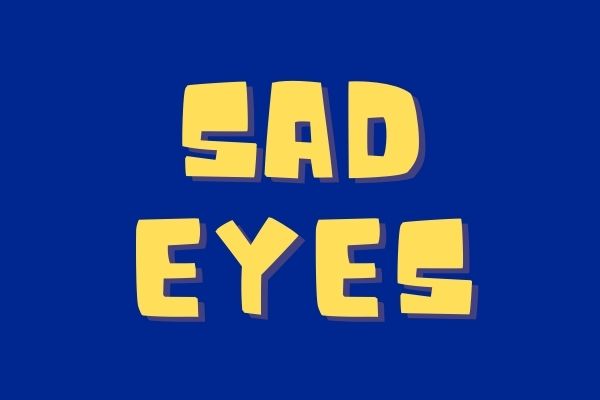Sad Eyes
by Don Rhymer
Cancer pushes everybody’s buttons differently. For some, it’s a scary “what if it happened to me?” For others, it’s an all too present reminder of the traumatic experience of a family member or close friend.
Either way, cancer is a devastating car crash that even the most disciplined bystander has a hard time turning away from.
After I was diagnosed with cancer of the head and neck, I learned quickly that everyone’s experience with cancer is different, and you can’t judge people by their response to your diagnosis. You can only count on the fact that it is probably scary for them, or at the very least emotionally charged, so you just have to give them grace.
I appreciate the “cool kids” who come with a joke. Or at least an attempt at one. I have always felt “whistling through the graveyard” is the best way to get to the other side. It acknowledges that, yes, you are “up the creek,” but that doesn’t mean the journey can’t involve bits of inspired slapstick and the occasional fart joke.
The “medical geeks” are okay too. The ones who drill you with a million questions about symptoms and side effects and come off just a little bit creepy when they ask to see your surgical site. Usually, these people watch far too many medical shows.
I can even handle the “it could be worse” people. There are certain people in this world who feel that true empathy is pointing out how utterly awful things could be and actually are for someone else they know. “So sorry you have cancer, Don. But it could be worse. My friend was mauled by a bear that ate 80 percent of his body, and now his wife has to roll him around in a Tonka® truck.”
In the bottom of the ninth with the game on the line, you don’t want someone stopping by the on-deck circle with a tear and a macaroni casserole.
The only ones I can’t handle are the ones who come at you with the dreaded “sad eyes.” They slink up with droopy faces and speak slowly as if talking to a child or a foreign exchange student. “How are youuuu?” No matter how up-beat your response, their reaction is almost always, “Awww!”
Now again, I try to give them grace, but sister, it ain’t always easy. Nothing reminds you of your own mortality like someone who appears to be practicing to greet your loved ones at your funeral. “He looked so healthy – up until the end when he lost all that weight and his wife had to roll him around in a Tonka truck.”
The point is, in the bottom of the ninth with the game on the line, you don’t want someone stopping by the on-deck circle with a tear and a macaroni casserole. You want someone slapping you on the back and offering you his or her lucky bat.
It’s not easy having cancer, and I know it’s certainly no picnic being the friend or family member of someone with cancer either. You don’t know what to say or do. You don’t know if you should be present or keep your distance, if you should send flowers or a whoopee cushion. Well, speaking for cancer survivors everywhere, I can only say that we can’t help you.
Because we don’t know, either. We’ve never been through this before, so we don’t always know what we want or need. The only real solution is the hardest one – to be completely honest. To do what you want to do, when you have the opportunity to do it. To say what you feel, when you feel it. And for us on this side of the equation? We have the hardest task of all – to develop the courage to ask for help when we need it.
There are no right answers in cancer world, but that also means there are few wrong ones. Except for “sad eyes,” which are universally unwelcome, and macaroni casseroles, which are not gluten free and are bad for my colon.

Don Rhymer is a head and neck cancer survivor and a screenwriter who has written for television and film for over 20 years. His credits include the sitcoms Coach and Evening Shade and the feature films Big Momma’s House, The Santa Clause 2, Surf’s Up, and Rio.
This article was published in Coping® with Cancer magazine, September/October 2012.
Editor’s Note: Don Rhymer passed away on November 28, 2012.
Everyone has a unique story to share. Do you want to share your survivor story? We consider a cancer survivor to be anyone living with a history of cancer – from diagnosis through the remainder of life. Here are our submission guidelines.


